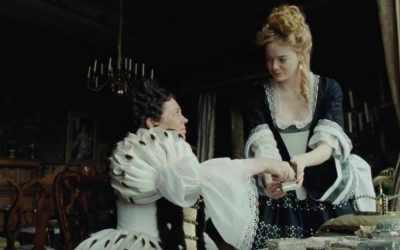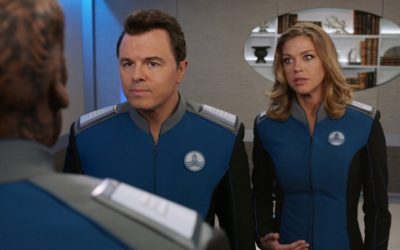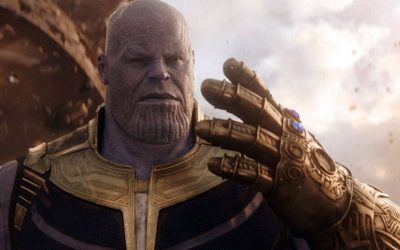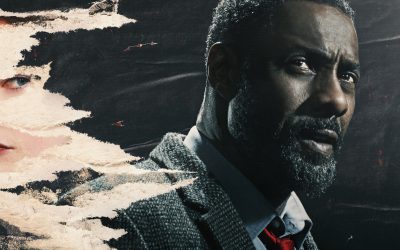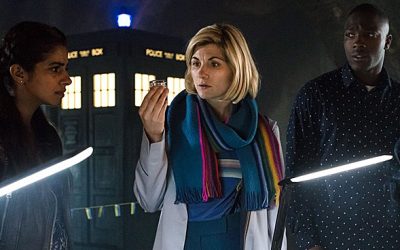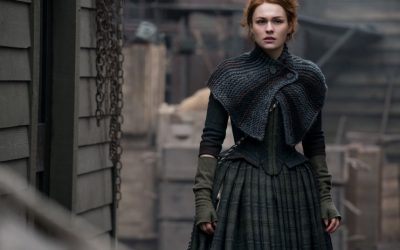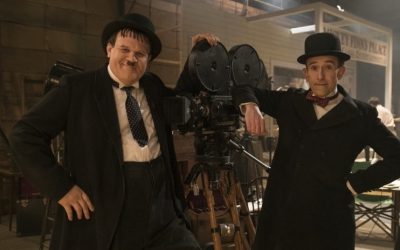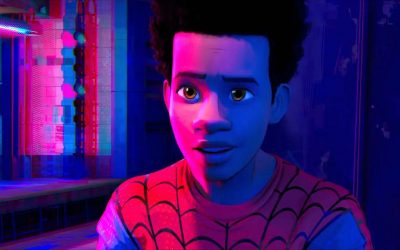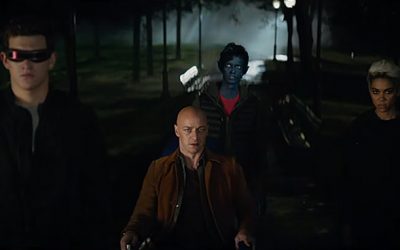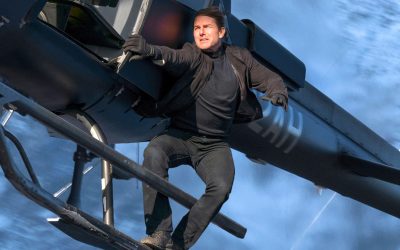
The Favourite review: a gorgeous and gobsmacking tragicomedy
Olivia Colman, Rachel Weisz, and Emma Stone are all on astonishing form in Yorgos Lanthimos’ raucous costume drama
Director Yorgos Lanthimos earned a reputation for making absurd, boundary-pushing films. That The Favourite lives up to its name as a major contender in this year’s award season might indicate that it’s not quite as out there as Dogtooth, The Lobster or The Killing Of A Sacred Deer, but between political machinations, secret affairs and a spot of duck racing for good measure, this raucous costume drama is never knowingly understated.
Olivia Colman, Rachel Weisz, and Emma Stone star as the main movers in a power struggle that takes place during the War of Spanish Succession. Riddled with gout, the depressed Queen Anne (Colman) largely leaves the running of England to Sarah, the Duchess of Marlborough (Weisz), who serves as the monarch’s closest adviser and confidant.
Enter Abigail Hill (Stone), Sarah’s younger cousin, who has lost her standing and her home as a result of her father’s gambling. After Sarah gives her a job as a scullery maid, Abigail comes to learn more about the unusual arrangement between her cousin and the queen, and a romantic rivalry soon erupts behind closed doors.
The first hour of The Favourite is just as advertised, playing more like The Thick Of It than Blackadder in its comedy. Even though it’s a couple of centuries removed from the Whitehall antics of Malcolm Tucker and company, the film evokes the same feeling of peeking inside the corridors of power and being alarmed by what we see. On top of that, it has got James Smith and lots and lots of swearing.
Unlike in Armando Iannucci’s similarly speculative satire The Death Of Stalin, Lanthimos’ film amplifies the feeling of being a fly on the wall. Cinematographer Robbie Ryan favours fish-eye wide lenses and claustrophobic camera movements that leave us stationed in selected spots for the length of a scene, watching the drama unfold from some dark corner.
Strangely, this all lends itself to the comedy remarkably well, as do the terrific performances of the three leads. The script, penned by Deborah Davis and Tony McNamara, requires versatile performances, and Colman, Weisz, and Stone are all acting at the peak of their powers in a dynamic that’s more than a little reminiscent of All About Eve.
At the centre of the triangle, Colman initially cuts quite a comic figure, with her unusual behaviour coming across as childlike and tempestuous. Over the course of the film, as we learn more about why Anne is the way she is, her performance grows into something quite extraordinary. It must have been a tough character to break, but she balances the comedy and the pathos spectacularly.
The standout, though, is Weisz, who conducts herself far more gracefully and passionately than a Tucker type. Imperious even in the face of the queen herself, Sarah is a formidable opponent to anyone seeking to disrupt her. Her spiky exchanges with both Abigail and Nicholas Hoult’s fabulously bewigged Tory git Robert Harley are a joy to behold. Just as impressively, Stone is truly compelling as the ambitious and manipulative Abigail, a lady in waiting in more ways than one.
The only way in which the film leaves you wanting is after it essentially becomes more serious. It’s no less great after it flawlessly executes the pivot into tragicomic territory, but the first half is considerably more entertaining. There are plenty more acerbic put-downs and unexpected gags where that came from, but they’re fewer and further between as the film builds to its climax.
Despite appearing to be quite ironically detached, The Favourite is just as emotionally engaging as it is laugh-out-loud funny. Lanthimos has made far more absurd films than this, but it’s a delight to watch him unsettle the worthy costume drama at a time in the film release calendar when we could really use it. The quality of Colman, Weisz, and Stone is absolutely inseparable (as could prove a problem in several Best Supporting Actress categories between now and next month) and it’s their combined effort that really makes this soar.
The Orville season 2 episode 1 review: Ja’loja
The Orville season 2 premiere puts the spotlight on Bortus in a fun nod to Star Trek’s “Amok Time”…
This review contains spoilers.
2.1 Ja’loja
The second season of the original Star Trek began with the famous episode “Amok Time,” in which Mr. Spock had to return to his home planet to have sex or die. And the second season of The Orville continues its overt to love-letter to old-school Trek with a similar premise in its second season premiere, “Ja’loja.” Bortas must return to his home planet for “the great relief,” because Moclans only urinate once a year. But, unlike “Amok Time,” The Orville doesn’t focus too much on this, and instead does an episode in which everyone figures out who they’re going to take as their dates for Bortus’s big day. Which spells trouble for Ed and Kelly.
Beginning with Captain Ed Mercer (Seth Macfarlane) sitting at the bar drinking and feeling bored with his daily routine and saying “all your thoughts just march inward,” The Orville season 2 premiere gives an early signal that despite the similarity to the ennui of Captain Pike in original Star Trek pilot, “The Cage,” this story is going to be more about people’s personal problems than outright space adventure. Though the set-up of “Ja’loja” borrows from “Amok Time,” the everybody-getting-ready-for-a-big-ceremony story feels more like The Next Generation classic “Data’s Day,” than anything else. That’s because there aren’t any intergalactic stakes in “Ja’loja,” just farcical romantic hijinks.
This works because it seems like The Orville is playing to it strengths right out of the gate. If any of the tonal wonkiness of the first season was off-putting for anyone, this second season debut seems to be sending a clear message: This show is a sitcom first, which means its characters will encounter sitcom-style problems in science fiction guises.
Like a lot of good sitcoms, our emotional investment in The Orville relies on how much we want one particular couple to work out their issues. On Friends it was Ross and Rachel, on Cheers it was Sam and Diane. Here, Ed and Kelly’s relationship is derailed by the arrival of Kelly’s new boyfriend, Cassius. And this twist gives us what is easily the episode’s best scene. Aware that Kelly is on a date (which he claims to be fine with) Ed takes a shuttle for a flyby past her window on the ship. This is the kind thing showrunner and writer Seth Macfarlane is great at. In all The Next Generation episodes in which Riker treated Troi like shit because she wanted to date someone new, we always sort of forgave him because (aside from having sex with holograms in season one) The Next Generation would never really show us Riker doing something overly creepy or stalker-y. But, The Orville goes there. Captain Mercer is using a shuttle to spy on his ex-wife and it’s equal parts hilarious and cringe-worthy.
For the most part, romantic relationships on sci-fi shows set in outer space make almost no sense in a realistic context. And yet, serious sci-fi shows, from Battlestar Galactica to Babylon 5 to Firefly all tugged at the audience’s heartstrings with various tragic or on-again, off-again relationships. Only the truly buttoned-up Next Generation tried to avoid ongoing romantic storylines at seemingly all costs. Sure, Picard and Crusher simmered for seven years, and Riker freaked out when Troi dated Worf, but these are blips on what was otherwise a starship wearing a giant chastity belt.
Tellingly, The Orville overtly references this idea when Kelly presents Ed with a scenario early in the episode. If he were forced to send her to die in a complicated and dangerous mission, would he be able to do it? Captain Picard faced this exact problem in The Next Generation episode “Lessons,” when he briefly dated Nella Daren. Dramatically, Picard did send Daren to what might have been her death, but only got broken-up with later. The fact this episode was called “Lessons,” is laughable, because the only lesson we learned was that Picard shouldn’t date a co-worker who is technically his subordinate. But, after this episode ended, so did that particular problem for the character of the Captain. Basically, save for a few moments, we get the impression that Picard never really dated much after that.
Which is why the newest season premiere of The Orville is so refreshing. Though Ed Mercer’s actions are played for laughs, the show has hit upon something TNG could never quite crack: People in these situations would act like idiots, give into jealousy, and generally make their lives worse because of love. And, it wouldn’t happen in just one episode, it would happen over and over again. It might not be the most original premise, but sci-fi shows almost never are able to make this kind of thing funny or relatable. Picard falling in love meant he had to learn a huge lesson and get depressed. Hell, in “Amok Time,” Spock was punished for having a biological needs by being tricked into thinking he killed his best friend. Shows like Trek tend to really make the characters feel like shit when they fall in love. Even Star Trek: Discovery is guilty of this: Michael Burnham falls in love with Lt. Tyler, only to find out he’s a Klingon spy. At the end of the day, the lack of relatable romance is the least optimistic thing about Star Trek in general.
But on the Trek-spoof The Orville, Ed’s behaviour toward Kelly (and Kelly’s attempt to find a new relationship) accomplishes something very rare in this kind of science fiction. He might be a jerk, but he does love her. This is good and smart and fun to watch. Mostly because it feels real.
Den of Geek’s top 20 movies of 2018 – No 1: Avengers: Infinity War
The Avengers face their biggest threat yet, as the MCU scores its biggest ever hit
This article contains spoilers for Avengers: Infinity War.
Undoubtedly the biggest movie of 2018 (scoring over $2 billion at the worldwide box office), Avengers: Infinity War has now also been voted the best in our writers’ annual films of the year poll.
The culmination of 10 years and 18 movies, Infinity War represented a milestone in the Marvel Cinematic Universe. It was also a huge achievement for directors Joe and Anthony Russo and screenwriters Christopher Markus and Stephen McFeely, who triumphantly pulled off a feat of cinematic plate-spinning hitherto undreamt of.
The sheer scale of Infinity War is staggering. A sprawling adventure set between Earth and various other outer-space locations, the film features a line-up of around 30 superheroes and series regulars. The fact that the writers and directors manage to successfully juggle all those balls, while delivering a satisfying pay-off to a decade’s worth of shared-universe set-up, is nothing short of a masterstroke.
What really makes the film work, though, is that underneath all the MCU trimmings, novelty team-ups and superhero side quests, lies a relatively simple – and suspenseful – race-to-collect-the-gems tale. The collective power of the Infinity Stones – and their potential for universe-wide mass destruction – means the stakes are about as high as they get.
Infinity War’s ambitious tapestry inevitably meant that some characters felt somewhat short-changed but, for the most part, everyone got their chance to shine – no mean feat given the bulging cast list.
The film is full of the kind of joyously exhilarating, punch-the-air moments you’d expect from a huge crossover event: from a resurgent Captain America (Chris Evans) stepping out of the shadows to save his pals as Alan Silvestri’s stirring Avengers theme kicks in, to Thor’s (Chris Hemsworth) electric entrance to the Wakandan battlefield wielding his new axe, Stormbreaker.
And then there’s the film’s villain, Thanos – a Big Bad teased as the MCU’s most formidable foe ever since 2012’s Avengers Assemble. Mo-capped brilliantly by Josh Brolin, the purple baldie was given almost as much screentime as the heroes, and provided the Avengers with a genuinely frightening nemesis worthy of the build-up.
Played as a sort of deranged, all-powerful eco-warrior, the Mad Titan outmatched our heroes at every turn, which only served to ramp up the film’s tension. The scene in which Thanos is oh-so-nearly de-gloved by Iron Man, Doctor Strange, Spidey and the Guardians is a thrilling nail-biter, if only because you’re genuinely fearful of what happens if they fail.
And fail they do. As Chadwick Boseman’s T’Challa unknowingly predicts before the climactic battle: “Thanos will have nothing but blood and dust.” It’s a bold, shocking, emotional cliffhanger of a finale that feels refreshingly risky for a Hollywood tentpole, as half of Earth’s mightiest heroes fade away one-by-one. It’s so bleak and melancholic, in fact, that even the perpetrator of the devastating final snap isn’t gloating (“What did it cost?” asks a young, Soul Stone-trapped Gamora. “Everything,” Thanos laments).
Can the Avengers reverse the destruction and defeat Thanos? We’re guessing so, otherwise 2019’s follow-up – Avengers: Endgame – isn’t going to be much fun (the upcoming Spider-Man and Doctor Strange sequels are a bit of a giveaway, too). But it’s how they’re going to come out on top that’s got everyone speculating furiously. One thing’s for certain: Thanos will return. And we can’t bloody wait.
Here, then, is our complete top 20 movies of 2018…
1. Avengers: Infinity War
2. Black Panther
3. Spider-Man: Into The Spider-Verse
4. Mission: Impossible – Fallout
5. Blackklansman
6. A Quiet Place
7. Annihilation
8. A Star is Born
9. The Shape of Water
10. Hereditary
11. Lady Bird
12. Coco
13. First Man
14. Crazy Rich Asians
15. Love, Simon
16. Game Night
17. You Were Never Really Here
18. The Endless
19. Widows
20. Ant-Man And The Wasp
So there you have it: another year, another batch of great movies. Can 2019 top it? Well, there’s already a load of films on the release schedule that we’re massively excited about, so hopefully we’re in for a happy – and movie-stuffed – new year.
Luther series 5 episode 1 review: fresh horror and old faces
Idris Elba as Luther is back and, we’re promised, this time it’s going to hurt. Spoilers ahead in our episode 1 review…
This review contains spoilers.
A few minutes in to the opening episode of the fifth series of Luther and it’s clear our eponymous ‘hero’ is still living on the edge, albeit not quite as literally as he was last series. His home may have changed, now above a shop that either sells everything or nothing, but it still bears the trademark look, which can only be described as ‘bitterly disappointing Airbnb’.
And John Luther continues to dance to the beat of his own Little Drummer Boy. He’s not a man who wears a seatbelt, is all I’m saying. And that’s one of the easier laws not to break.
After a quick chase of a token wrong’un through Season 2 of The Wire some containers, he hands him over to some infinitely more boring policemen, before being dragged into the back of a van by goons. Turns out they work for chirpy cockney George Cornelius, the man DCI Luther chained to a radiator when he thought he’d killed Alice, his nemesis-girlfriend. (We’ve all got one.)
In all seriousness, it’s nice to see Patrick Malahide back, Luther tends to burn through ancillary characters like Trump through exclamation marks, so it’s good to see a familiar face. What ever happened to Jenny, I wonder? I liked her. And while we’re on the subject, no word of what happened to Rose Leslie’s Emma, who killed a man with a unlicensed gun at the end of the last series. Or Pound Shop Alice, Megan Cantor, who…
No time for that, Luther’s back at home for a nice up of tea with his one-time-nemesis-now-boss Schenk, who bears news of another replacement partner. Might as well pick out your funeral hat now, right? Catherine Halliday (played by future National Treasure Wunmi Mosaku) is a fast-tracker, which means, according to the boys, she’ll be in charge in about 10 minutes. The audacity of it, getting promoted because you actually turn up for work rather than disappearing for large stretches of the day to get your hand nailed to a table by Pam Ferris. The police ain’t what they used to be.
But wait up, there’s a body in a play park, time for some actual work. Of course, you, the viewer, knows something John Luther doesn’t, and that’s that the victim’s been killed by some guy who probably has a dress made from pubic hair and lives in a house full of dolls that look like his mum. What you don’t know, is that I wanted John Luther to go down the slide towards the body more than I’ve ever wanted anything in my life.
So what else is new? Not much. Luther continues to go heavy on the creeps – that crawl down the bus floor was all sorts of horrific. It’s also big on the Lewton Buses, so much so that one was a literal bus. It loves a slow pan and none was ever quite so slow as John Luther stood at the window as it was slowly revealed that the killer had off-ed one of the Jim Rose Circus Sideshow. And it r-e-a-l-l-y loves some artful staring, with top marks to Hermione Norris for that face-off with a clock.
Oh yes, Hermione Norris is here too, displaying cheekbones so magnificent that if she fell face first into a cheesecake it’d merely save you the effort of slicing it.
Here, she’s a psychiatrist throwing her patient to the dogs so she can continue to live with what appears to be her batshit husband in her Grand Designs graveyard chic house. Catherine’s on to her, though, because she’s smart. And because she actually does some work. Unlike Luther, who along with Benny (who it’s nice to see out and about), finds himself in the Industrial Zone with a few minutes to find and key and get the crystal/stop Errol’s head from exploding.
Still, when that’s over, there will be time for work, surely? Oh hang on, scrub that, HERE’S ALICE. Until tomorrow.
Luther series 5 continues tomorrow night at 9pm on BBC One.
Doctor Who series 11: Resolution review
Chris Allcock
Jan 1, 2019
The Doctor encounters one of humanity’s oldest adversaries in the New Year’s Day special. Here’s our review of Resolution…
This section of the review is free of spoilers. If you vent…
Outlander season 4 episode 9 review: The Birds & The Bees
Kayti Burt
Dec 31, 2018
Bree lives the painful results of her recent trauma amongst the comforts of family. Spoilers ahead in our review…
This review contains spoilers. See related
Outla…
Stan & Ollie review: a by-numbers biopic lifted by its stars
John C. Reilly and Steve Coogan bring to life comedy film legends Oliver Hardy and Stan Laurel
It’s a late night in the study of a British hotel suite during a certain scene in Stan & Ollie, but the transatlantic travel and sleepless hours aren’t enough to squash Stan Laurel (Steve Coogan) and Oliver Hardy’s (John C. Reilly) creative juices. Now in the later stages of their careers, the pair is workshopping ideas for a Robin Hood film parody that will never come to be, but they don’t know this yet. Instead Laurel is explaining and demonstrating a sight gag involving a curtain to Hardy, who plays along until the punchline and breaks out into laughter.
There are many moments like this in Stan & Ollie, the latest from Filth director Jon S. Baird and co-writer Jeff Pope, who worked on Coogan’s Philomena. The story they’ve crafted, one billed as a familiar celebrity biopic, is as sweet as it is predictable, and moviegoers familiar with the sometimes Oscar-baiting biopic genre will recognise many of the major beats. Even so, what makes the film work are the character-driven moments in which Coogan and Reilly manage to channel Stan and Ollie with uncanny ease.
Stan & Ollie begins with a look back at the titular pair’s initial break with Hollywood mega-producer Hal Roach (Danny Huston), who helped launch their hugely popular comedy films in the 1930s and 1940s. They’re unhappy about their contract and ready to demand more money, but when the time comes to confront Roach, Hardy backs down, leaving Laurel to fend for himself. This drives a wedge between them that will later resurface in flashbacks and a penultimate confrontation in the film’s final act when they are older, wiser, and more tired.
As necessary for the story as these beats are, Stan & Ollie is less about Laurel and Hardy’s beginnings and more about the twilight of their partnership. This is where the late night brainstorming scene comes into play. The movie follows their reunion for a 1953 tour of the British Isles. Despite the efforts of a well-meaning manager (Rufus Jones), the various venues they are booked to play are barely selling any tickets. This quickly wears the pair down, almost as much as Hardy’s health problems and Laurel’s fleeting suspicion that the Robin Hood film will never happen.
Yet they persevere, and this is where the meat of the movie really is. Watching these two prepare time after time to put on many of the same popular routines from their films, traveling to the next gig and working out new material in the interim makes Stan & Ollie excel beyond its otherwise bland, genre-specific elements. Yes, there’s the long buildup to a nasty fight between Laurel and Hardy. Yes, there’s a health scare. Yes, there’s a form of reconciliation before the end credits roll. But what really works are the intimate moments these two men and, dare we say it, friends share with one another.
Consider the oft-teased trunk scene from the trailers. The pair is rushing to catch a train before it departs and struggling with the sheer amount of luggage that accompanies them. When Hardy inquires about the time, Laurel asks him to hold a trunk so that he can check his watch. Unfortunately for them, Hardy grabs the wrong piece of luggage and before Laurel can react, the trunk in question begins its fateful slide down a stairwell. Soon after it stops, the heavier and decidedly more exasperated Hardy quips, “Do we really need that trunk?”
In many ways, this scene operates as a sort of meta-play on the set pieces most often associated with their comedy films. It’s also a great way to introduce audiences to the men behind the film characters, for the real challenge in bringing them to life is figuring out how to play two parts at once. We know how the Laurel and Hardy of the Laurel and Hardy films would react in such a scenario, but what about the men themselves? Would the cerebral and witty Laurel tease his companion over the gag? Would the more curmudgeonly Hardy berate his partner for giving him the wrong suitcase?
Coogan and Reilly accomplished this feat by rehearsing the routines for over a month just to get them right. In all that time they also managed to capture both sides of their respective characters. Coogan perfects the linguistic tics and physical mannerisms of the seemingly shyer Laurel with ease, while Reilly combines the tools afforded him (a fat suit and significant prosthetics) with a strong sense of physicality and friendly tiredness to bring Hardy back to life. Their character work is so good, in fact, that it’s enough to drive the film despite its paint-by-numbers approach to this particular genre of filmmaking.
Huston’s Roach, Jones’s manager and other minor characters earn honorable mentions, of course, though a review of Stan & Ollie, regardless of its opinion, would be incomplete without mentioning Shirley Henderson and Nina Arianda’s work as Lucille Hardy and Ida Kitaeva Laurel. The former excels as Hardy’s demonstrably smaller but fiercely supportive wife. She acknowledges his longtime collaboration with Laurel, but is more than willing to defend him against his partner’s perceived penchant for overworking him. Arianda, meanwhile, gleefully chews the scenery as Laurel’s Russian wife, a woman who is seemingly independent of her husband’s needs but always down for a public fight on his behalf if necessary.
Henderson and Arianda’s performances, along with Coogan and Reilly’s as the title characters, help make Stan & Ollie seem far better than it really has any right to be. Because this is a standard Hollywood biopic that is replete with creative navel-gazing. It boasts many of the beats that audiences, especially Academy voters, have come to expect from such fanfare. In spite of such caveats, however, Stan & Ollie manages to succeed in large part because of the work that Coogan, Reilly, Henderson and Arianda have put into their performances.
Stan & Ollie opens in UK cinemas on 11 January 2019.
Den of Geek’s top 20 movies of 2018 – No 3: Spider-Man: Into The Spider-Verse
Richard Jordan
Dec 29, 2018
Our favourite neighbourhood webhead gets a funny, emotional and visually stunning big-screen refresh
“Do we really need another Spider-Man?” That was the question on everyone’s lips …
X-Men stories for the MCU could develop in 2019, says Kevin Feige
Joseph Baxter
Dec 29, 2018
Marvel Studios boss Kevin Feige says 2019 could see development commence for the X-Men’s MCU arrival.
The Marvel Cinematic Universe could see the arrival of Fox properties like X-Men …
Den of Geek’s top 20 movies of 2018 – No 4: Mission: Impossible – Fallout
Richard Jordan
Dec 28, 2018
Tom Cruise and Chris McQuarrie deliver an action movie par excellence
The Mission: Impossible franchise has, against all odds, long bucked the trend of diminishing returns for movie …

